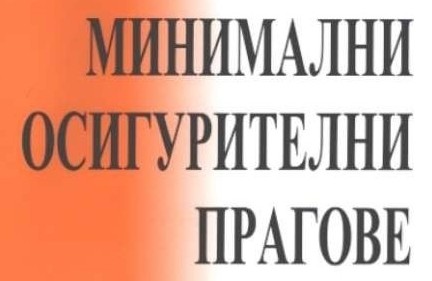15.07.2014
At the end of last week ended designated by MLSP round of talks between the branch organizations of trade unions and employers regarding the minimum insurance income (MOD) 2015 In the negotiations are concluded agreements 9 21 economic activities that support the 632 831 persons (33% of all employees). The overall growth of MOD for the agreements was 3.9%, reaching an average MOD amounted to 524.55 lev, which is equivalent to 77% of average insurable earnings at the time (682.65 lev). For comparison, last year, agreements were signed 44 economic activities which covered 57% of the persons to be insured. 10 agreements in 2013 were zero growth MOD, and the average growth rate was 4.1%.
The transmission delay of branch agreements between unions and employers practical will expire on August 27 this year, when is the last scheduled meeting of the Working Group MLSP MOD-2015. Until then, we can adopt new agreements, if signed. The working group will discuss possible approaches for determining the amount of the MOD for all sectors, including. for those that do not have signed agreements between employers and unions.
Under the agreements signed to date the highest MOD has agreed sectors "Oil and Gas" - 1573 lev, "Mining of clays and kaolin" - 639 Levs and "Coal Mining" - 604 Levs . lowest is MOD sectors "Foundry" - 436 lev, "Manufacture of fabricated metal products, except machinery and equipment" - 415 Levs and "Postal and courier activities" - 364 lev largest growth MOD compared to 2014 is in the "Production and processing of poultry" - 7.6%, followed by the sector "Manufacture of motor vehicles, trailers and semi-trailers' - 6.9% 'Trade' - 6%, and" extraction of clay and kaolin "- 5.8%. Most small stature (below 2%) is a mutual sectors "Machine" - 1.8%, "Manufacture of fabricated metal products, except machinery and equipment - 1.8%," Manufacture of engines and turbines '- 1.7%' hotel, restaurant and tour operator "- 0.5%, and" Manufacture of food products "- 0.3%.
Recall that the BIA advised its members in the course of negotiations to insist on the "freezing" of the MOD and in sectors where there are serious economic challenges - even reducing the minimum insurance levels. According to the BIA, agreeing MOD has a negative impact on employment, especially for low-skilled workers. This is confirmed in another recommendation [1] of the European Commission on the National Reform Programme of Bulgaria for 2014 consistent position of the BIA is that the mechanism of negotiating MOD leads to "close" the gap in pay between skilled and qualified staff which also has a negative impact on the labor market. Furthermore, when negotiating MOD should take into account the processes of deflation and deterioration of indicators of labor productivity, which lags behind the growth of wages.






